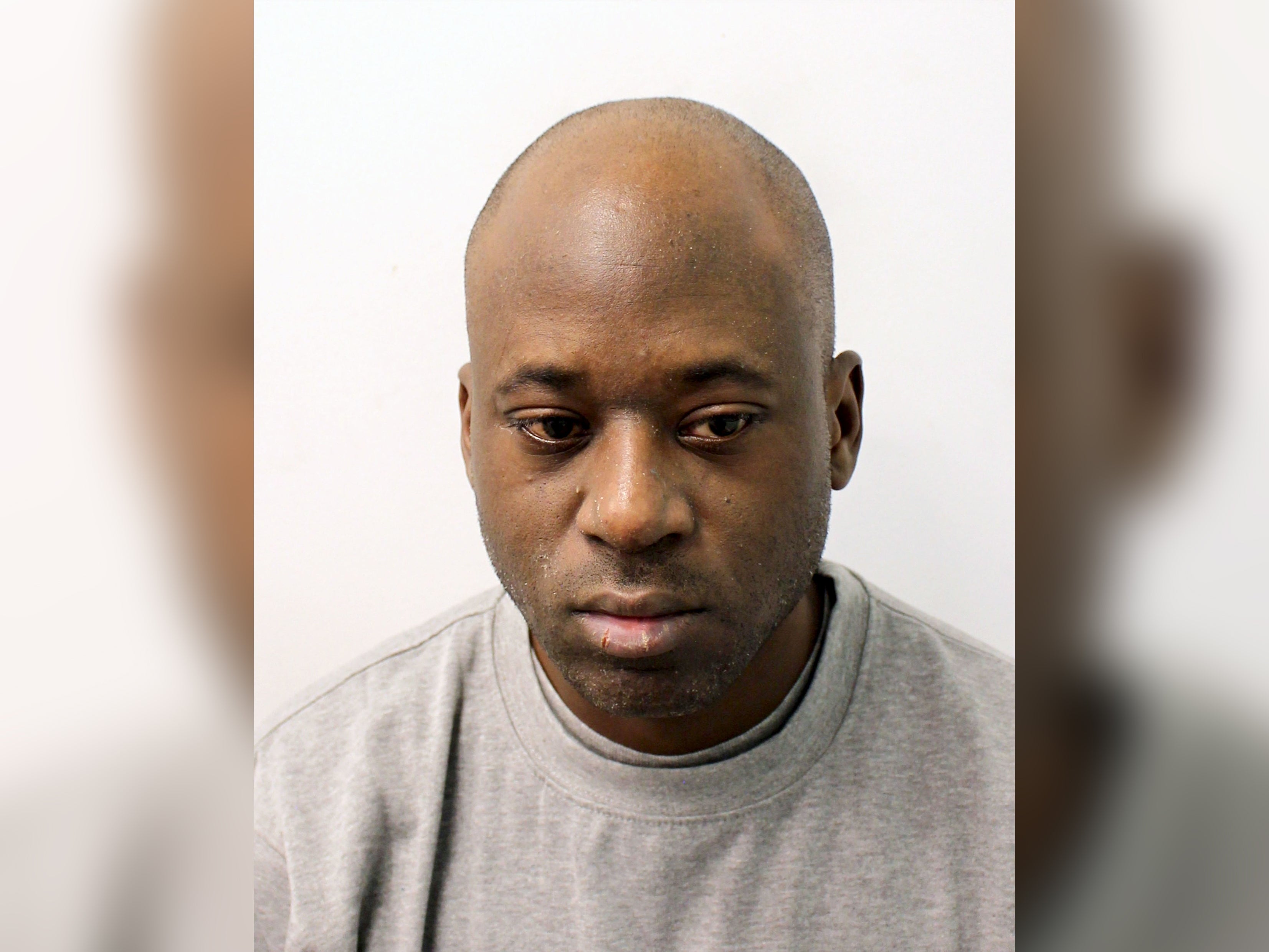Mark Brazant: Mentally ill man sentenced to life for attempting to murder woman pushing her child in buggy
‘It can only be imagined the horror and terror Josephine Conlon must have felt for her child’, judge says

Mark Brazant, a mentally ill violent offender who attempted to murder a woman as she pushed her child in a buggy in Streatham, southwest London, has been sentenced to life in prison.
The 44-year-old stabbed mother Josephine Conlon multiple times in the face and neck as she pushed her young daughter in a pushchair on 30 December last year. He handed himself in to officers three days later.
Now in a hearing at the Old Bailey he has been handed a life sentence with a minimum hybrid hospital and custodial term of 11 years after admitting to attempted murder.
Brazant, who had 19 previous convictions and a track record for attacking lone women in the street, had only been released from jail on Christmas Eve when he crossed paths with Ms Conlon.
Neighbours said they were alerted to the incident when they heard the mother’s “blood-curdling scream” – with Ms Conlan telling the court she feared her assailant was going to rape her.
Judge Angela Rafferty QC described it as a “ferocious, unprovoked attack” and said Brazant was “totally unpredictable”.
“It can only be imagined the horror and terror Josephine Conlon must have felt for her child”, the judge added. “It’s quite apparent to me that Josephine Conlon showed extreme courage when you attacked her, she was not the defenceless woman you thought you had at your mercy. She fought back.”
Ms Conlon had been walking with her child after meeting up with friends at the time of the incident – with the mother telling jurors she first realised she was under attack when she was shoved forcefully in the back.
As the 36-year-old fell into a driveway, her young daughter rolled on to the kerb and became wedged next to a parked car. After being stabbed seven times in the face and neck, Ms Conlan’s assailant fled.
In a victim impact statement submitted to the court, she said: “It has been almost nine months since the attack and although I worked really hard to rehabilitate myself, it feels my life is on hold.
“I struggle with large crowds and I am unable to leave my house after dark.
“I am a very positive and social person and I love being busy. Before the attack I used to pack my weekends and evenings full.
“There have been periods where I have been very low... and it took me six months before I could go back to work.
“The physical wounds have been very hard to come to terms with. Having said that, I have been lucky – all I have is a few scars.
“I also feel I failed my daughter for walking her into such a dangerous situation and witnessing the attack on me. It could have been so different.”
Brazant, who has paranoid schizophrenia, initially denied meaning to seriously injure his victim – but admitted to the attempted murder in August. His change in plea came after the prosecution called for a retrial in response to the jury’s inability to reach a verdict after more than 40 hours of deliberations.
In November 2019, weeks before his assault on Ms Conlan, he had attacked four women in the space of one day – punching one for laughing and grabbing another by the neck after claiming she had smiled at him.
Following the incidents he pleaded guilty to three charges of battery and one of common assault – however he was released on licence from Thameside Prison on Christmas Eve to spend a year on post-sentence supervision.
Days before his attempted murder of Ms Conlan he was reported missing after failing to attend a supported house for people with mental health problems.
Defence counsel Oliver Renton said his client was “paranoid and sleep-deprived” at the time, “wandering the streets and sleeping on buses”, and added: “But for his mental illness, the attack would never have been carried out.”
During his original trial, Brazant, of Ealing, west London, said he chose Mrs Conlon because she was small, female, pushing a buggy and he did not think she would fight back.
Having stabbed her repeatedly, he told himself, “that’s enough, that will do” and left, he said.
The court heard Brazant was on medication for his mental health condition but had stopped taking it.
Additional reporting by agencies
